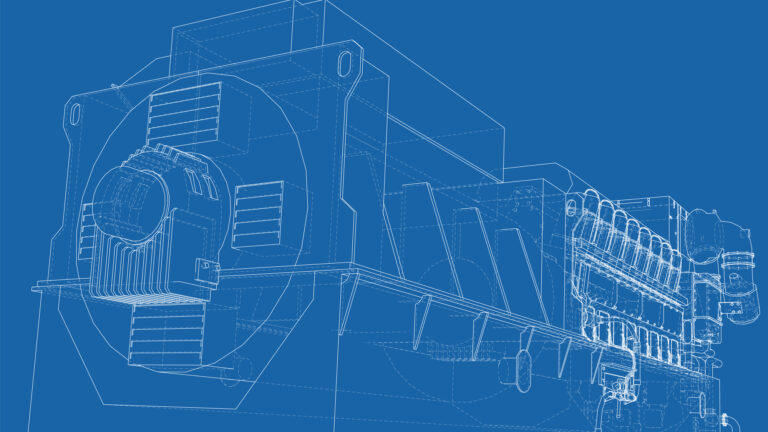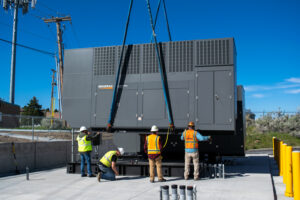
When to know it is time to replace your Standby Generator
As with any piece of mechanical equipment, standby generators are subject to wear, tear, and breakdown. But if after a few decades your generator isn’t having outward or obvious signs of degradation, when should you purchase a replacement? In this article we will go over six signs that may indicate it is time to replace your generator.
1. It Has Been In Service for a Long Time
Depending on the quality and size of your standby generator, most manufacturers usually predict that a standby generator will remain reliable anywhere from 10,000 – 30,000 running hours (about 25 – 40 years) depending on how well it is maintained. If maintained properly, the less you use your generator, the longer it will last. Even if it seems like your generator is still running strong after 40 years of light use, there are likely unseen internal parts that are well worn down and on the verge of breaking, you won’t be producing the same amount and quality of power that you were when the generator was first installed, and a critical failure may be right around the corner.
2. It Is No Longer the Correct Size for Your Needs
With any new business or home, predicting load growth is a tricky process. You could begin your business or move into a new home with one set of power needs, and then things could quickly evolve into a whole new set of circumstances. Whether your home or business is shrinking or growing, you need to be aware of the load being transferred to your generator when utility power fails. If your generator is too big for your load, carbon deposits could be building up in your gen without you even noticing. If this continues to occur for too long without intervention, your generators’ power producing capabilities will be greatly reduced. If your generator is too small for your load, the generator is more likely to fail or even overheat when power is transferred.
Revisiting your power producing requirements is a good idea, at least every time your power needs change within your home or business. If you notice your generator is not properly sized for your requirements, replacing your generator with a properly sized one is recommended for optimal power production.
3. It is Showing Signs of Wear
Even with proper maintenance and storage, wear and tear is a natural part of any machines’ lifespan. If you have not been performing routine maintenance or if your generator is exposed to the elements, wear will occur much faster, thereby shortening the lifespan of your generator significantly. Biannual maintenance and continuous sheltering of your generator from weather, dust, and debris can greatly increase the amount of time your generator will remain a reliable source of backup power for your home or business. If any part of your generator starts showing signs of excessive rust, it is time for a new generator.
4. It is No Longer Reliable
If your generator develops problems starting on demand or you notice you are calling the repair man more than normal; it’s time to buy a new generator. The main reason you purchase a standby generator is to provide backup power during a utility outage, so if your generator has problems starting during an outage, there is no way to know if you can rely on the power to be provided when you are not there to remedy any issues with starting.
5. It Uses Outdated Technology
Technology is ever evolving and things are upgrading at an increasingly rapid speed. What was state of the art ten years ago, is now outdated and seems like it was invented in the Stone Age. Generators are finely tuned machines that will only get more intricate and tech heavy as time goes on. If your generator is no longer supported by the manufacturer, or the technology is no longer able to be updated for your specific model; that may be a good indication that it is time for an upgrade.
6. Updated Ecological Interests
Air quality regulations are ever changing, and trending toward becoming more strict. With climate change happening at an ever increasing rate, our government has increased the laws surrounding diesel and natural gas generators. As generators age, they start to consume excessive fuel and have high levels of carbon monoxide output which, according to scientific research, is detrimental to the environment. If you start to notice either of these symptoms beginning to emerge, chances are your generator is not up to date with the current environmental standards for power generation equipment and should be replaced.
Got More Generator Questions? We Can Help!
Call 800-595-5315 Or Connect With Our Expert Technicians Here:
Other Articles
- Critical Spare Planning
- Where Do I Start On My Generator Installation?
- How can Las Vegas heat lead to generator failures?

Lead Generator Technician
Conrad has over 10 years of experience in power generation. He graduated from Universal Technical Institute, and has a master certification from Generac. He loves the great outdoors and spending his time camping and fishing.





